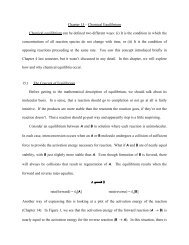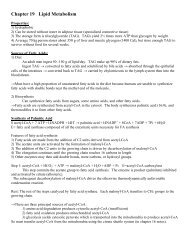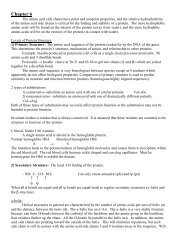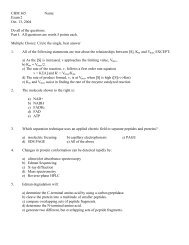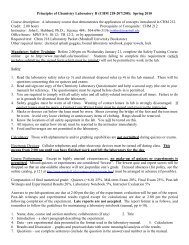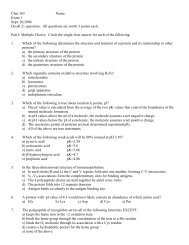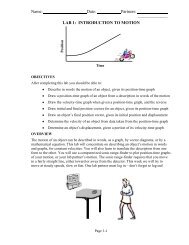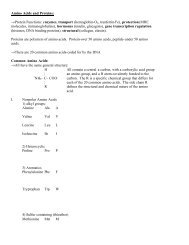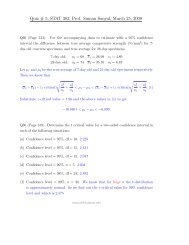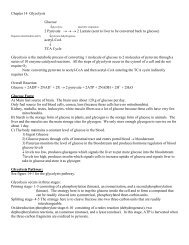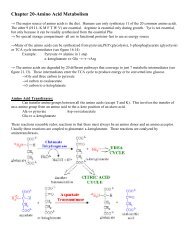THE DHAMMAPADA: THE WAY OF THE BUDDHA, VOL. 9-12 The ...
THE DHAMMAPADA: THE WAY OF THE BUDDHA, VOL. 9-12 The ...
THE DHAMMAPADA: THE WAY OF THE BUDDHA, VOL. 9-12 The ...
Create successful ePaper yourself
Turn your PDF publications into a flip-book with our unique Google optimized e-Paper software.
<strong>THE</strong> <strong>DHAMMAPADA</strong>: <strong>THE</strong> <strong>WAY</strong> <strong>OF</strong> <strong>THE</strong> <strong>BUDDHA</strong>, <strong>VOL</strong>. 9-<strong>12</strong> 167<br />
In desperation he asked her to come to his apartment for a night of lovemaking. To his surprise she happily<br />
agreed, kissed him passionately and said, ”You see, you don’t need any of those things to have a good time!”<br />
It depends on people what can be called happiness. To the sleeping, pleasurable sensations are happiness. He<br />
lives from one pleasure to another pleasure. He is just rushing from one sensation to another sensation. He lives<br />
for small thrills. His life is very superficial; it has no depth, it has no quality. He lives in the world of quantity.<br />
<strong>The</strong>n the people who are in between, who are neither asleep nor awake, who are just in a limbo, a little bit<br />
asleep, a little bit awake. You sometimes have that experience in the early morning: still sleepy, but you can’t<br />
say you are asleep because you can hear the noise in the house, your wife preparing tea, the noise of the samovar<br />
or the milkman at the door or children getting ready to go to school. You can hear these things, but still you are<br />
not awake. Vaguely, dimly these noises reach to you, as if there is a great distance between you and all that is<br />
happening around you. It feels as if it is still a part of the dream. It is not a part of the dream, but you are in a<br />
state of in-between.<br />
<strong>The</strong> same happens when you start meditating. <strong>The</strong> non-meditator sleeps, dreams; the meditator starts moving<br />
away from his sleep towards awakening. He is in a transitory state. <strong>The</strong>n happiness has a totally different meaning:<br />
it becomes more of a quality, less of a quantity; it is more psychological, less physiological. He enjoys music more,<br />
he enjoys poetry more, he enjoys creating something. He enjoys nature, its beauty. He enjoys silence. He enjoys<br />
what he had never enjoyed before, and this is far more lasting. Even if the music stops, something goes on lingering<br />
in you. And it is not a relief.<br />
<strong>The</strong> difference between pleasure and this happiness is: it is not a relief, it is an enrichment. You become more<br />
full, you become a little overflowing. Listening to good music, something is triggered in your being, a harmony<br />
arises in you you become musical. Or dancing, suddenly you forget your body; your body becomes weightless.<br />
<strong>The</strong> grip of gravitation over you is lost. Suddenly you are in a different space: the ego is not so solid, the dancer<br />
melts and merges into the dance. This is far higher, far deeper than the joy that you gain from food or sex. This<br />
has a depth. But this is also not the ultimate.<br />
<strong>The</strong> ultimate happens only when you are fully awake, when you are a buddha, when all sleep is gone and all<br />
dreaming is gone, when your whole being is full of light, when there is no darkness within you. All darkness has<br />
disappeared and with that darkness, the ego is gone. All tensions have disappeared, all anguish, all anxiety. You<br />
are in a state of total contentment. You live in the present; no past, no future anymore. You are utterly herenow.<br />
This moment is all. Now is the only time and here is the only space. And then suddenly the whole sky drops<br />
into you. This is bliss. This is real happiness.<br />
Seek bliss, Jayananda; it is your birthright. Don’t remain lost in the jungle of pleasures; rise a little higher.<br />
Reach to happiness and then to bliss.<br />
Pleasure is animal, happiness is human, bliss is divine. Pleasure binds you, it is a bondage, it chains you.<br />
Happiness gives you a little more rope, a little bit of freedom, but only a little bit. Bliss is absolute freedom. You<br />
start moving upwards; it gives you wings. You are no more part of the gross earth; you become part of the sky.<br />
You become light, you become joy.<br />
Pleasure is dependent on others. Happiness is not so dependent on others, but still it is separate from you.<br />
Bliss is not dependent, is not separate either; it is your very being, it is your very nature. To attain it is to attain<br />
to God, to nirvana.<br />
<strong>The</strong> third question:<br />
Question 3<br />
BELOVED MASTER, WHAT IS SELFISHNESS?<br />
Yoga Chetana, selfishness is the shadow of the idea of a separate self. It is a shadow of a shadow, a reflection<br />
of a reflection. It is as if you see the moon in the lake and then you see the moon reflected in the lake in a mirror.<br />
It is far, far removed from reality. Even the reflection in the lake is not real, but the reflection of the lake in the<br />
mirror is even more unreal.<br />
<strong>The</strong> ego is a reflection in the lake of your true being. Your true being is the moon; the ego is only a reflection<br />
in the lake. <strong>The</strong> reflection in the lake can be disturbed even by a small pebble. Throw a small pebble and you<br />
will see: the moon is disturbed, distorted. Ripples arise and the moon is broken into thousands of pieces.<br />
Selfishness is the shadow of the ego, even more unreal. You are not a self. In Buddha’s words, you are not an<br />
atta a self; you are anatta a no-self. Hence, Buddha does not teach you altruism, neither do I teach you altruism.<br />
This point has to be understood well: I don’t teach you to be altruistic. That’s what the priests of almost all the<br />
religions go on doing. <strong>The</strong>y say, ”Selfishness is bad.” <strong>The</strong>y don’t say, ”Selfishness is false.” <strong>The</strong>y say, ”Selfishness<br />
is bad, selfishness is sin.” But they accept its reality, they don’t reject its reality. If it is unreal, then they cannot<br />
condemn it as a sin. How can you call anything unreal a sin? If it does not exist in the first place, how can it



